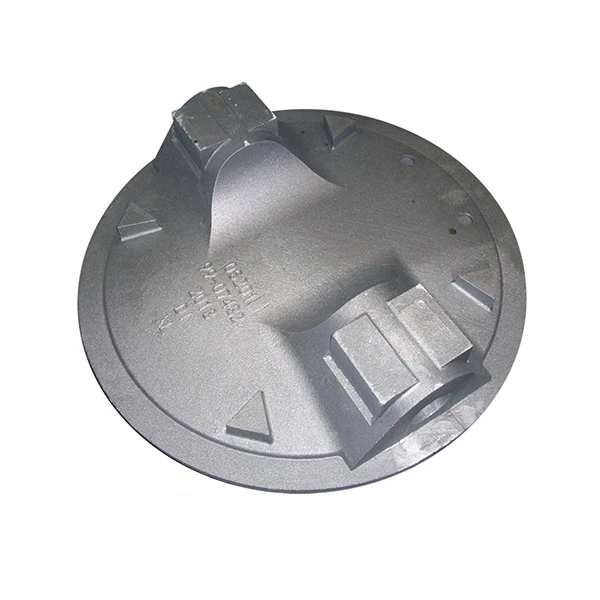Mobile:+86-311-808-126-83
Email:info@ydcastings.com
closed type impeller
Understanding Closed Type Impellers Design, Function, and Applications
An impeller is a crucial component of various mechanical devices, particularly pumps and compressors. Among the different types of impellers, the closed type impeller stands out due to its efficiency and effectiveness in fluid dynamics. This article delves into the design, function, and applications of closed type impellers, highlighting their importance in various industries.
Design of Closed Type Impellers
A closed type impeller consists of two circular discs, often referred to as the front and rear shrouds, that enclose the blades. This design creates a chamber that allows for smooth fluid flow, minimizing turbulence. The blades are typically curved and can vary in number and length, depending on the specific application and desired flow characteristics. The enclosed design helps maintain a consistent fluid pressure, essential for achieving optimal performance.
The materials used in closed type impeller construction are generally high-strength alloys or thermoplastics, making them resistant to corrosion, wear, and chemical attack. The choice of material is crucial, as it should withstand the operational conditions of temperature, pressure, and the fluid being processed. Furthermore, closed type impellers can be designed with different angles and geometries, enabling precise control over fluid motion and energy transfer.
Functionality of Closed Type Impellers
The primary function of a closed type impeller is to convert mechanical energy into kinetic energy, facilitating the movement of fluids. When the impeller rotates, its blades impart momentum to the fluid, causing it to move through the system. The closed design helps maintain a high velocity of the fluid, enhancing the pump or compressor’s overall performance.
Closed type impellers are particularly effective at generating high heads, making them suitable for applications that require the elevation of fluids to significant heights. Moreover, their design contributes to a reduction in turbulence and vortex formation, which can lead to cavitation—a phenomenon that can damage mechanical components.
closed type impeller

One of the significant advantages of closed type impellers is their ability to handle varying flow rates and pressures efficiently. This adaptability is crucial for many industrial applications where fluid demands fluctuate. Additionally, the impellers are designed to be more efficient at converting input power into fluid movement, which can help reduce energy consumption and operational costs.
Applications of Closed Type Impellers
Closed type impellers are widely utilized across diverse industries due to their robustness and reliability. One of the most common applications is in centrifugal pumps, which are used to transport water, chemicals, and other fluids in municipal water systems, irrigation, and wastewater treatment plants. Their high efficiency makes them particularly favorable for pumping applications that require the handling of viscous or abrasive fluids.
In the industrial sector, closed type impellers are used in chemical processing, oil and gas production, and food and beverage applications. They are often found in mixing and blending equipment, where fluid movement must be controlled precisely to achieve the desired product consistency. Additionally, closed type impellers are crucial in cooling systems, ensuring that fluids are moved efficiently to prevent overheating in various machinery.
Furthermore, these impellers are essential in HVAC systems, where they help circulate air and refrigerants. Their reliability and efficiency contribute to maintaining consistent temperature control and air quality in residential, commercial, and industrial settings.
Conclusion
In summary, closed type impellers are integral components in many fluid handling applications. Their unique design, which reduces turbulence and enhances efficiency, makes them ideal for various industries. Understanding their functionality, design attributes, and applications allows engineers and operators to harness the full potential of closed type impellers, leading to improved performance and cost savings in fluid management systems. As technology continues to advance, the evolution of impeller design will further enhance their capabilities, catering to the ever-evolving demands of the industrial landscape.
-
Why Should You Invest in Superior Pump Castings for Your Equipment?NewsJun.09,2025
-
Unlock Performance Potential with Stainless Impellers and Aluminum End CapsNewsJun.09,2025
-
Revolutionize Your Machinery with Superior Cast Iron and Aluminum ComponentsNewsJun.09,2025
-
Revolutionize Fluid Dynamics with Premium Pump ComponentsNewsJun.09,2025
-
Optimizing Industrial Systems with Essential Valve ComponentsNewsJun.09,2025
-
Elevate Grid Efficiency with High-Precision Power CastingsNewsJun.09,2025











